One Bad Day
BY GUS HARDY | July 6, 2017
At the Poverello Center, everything moves at a very hectic pace. Given that I distribute medications, resolve conflicts, check in new clients, handle the phones, and mobilize volunteers—most of the time all at once—I don’t have much of a chance to talk one-to-one with the people that I serve. That’s why the most meaningful parts of service for me are the daily intakes. Here, the staff has a chance to sit down with clients one at a time and talk with them about their backgrounds, where they come from, and what resources we can set them up with in town. It’s calm, personal, and a chance to pay attention to people as they bear their stories to us.
During the beginnings of these interviews, the question “How did you come to our center?” always arises; this is where we usually have a chance to learn how somebody became homeless in the first place. Oftentimes, there are similar themes—drugs, issues with mental health, loss of work—but something that always stands out is that so many have been able to trace the beginnings of their misfortunes to one day in particular.

Clients checking in at the front desk at the Poverello Center.
One woman shared how she was driving through town to get to Seattle, stopped to use the bathroom, and left all of her belongings in the car without a thought. When she left the bathroom, she returned to see her car in flames—the engine had overheated and exploded. All of her identification, money, and cell phone had been incinerated. Like that, she was homeless. A man tells me about how he’d had a heart attack, the ambulance came for him, and while he was in the hospital, the cops arrested him on a four-year old warrant. They held him for two weeks, just enough time for him to lose his apartment. Now he’s back at the shelter after putting his life back together—rolling the boulder all the way to the top of the hill. One woman was abused, and one day CPS came to take her kids out of “an abusive environment.” The shock of both events at once led her to drugs, and then to the streets. Three lives in need of rebuilding, and all have come to the Poverello Center in search of the things that we provide—rehousing, job references, and a place of safety while they can rebuild their lives. Note, though, that in these cases, it didn’t take massive events or world-shaking tragedy to shatter lives—all it took was one bad day.
[socialpug_tweet tweet=”It didn’t take world-shaking tragedy to shatter lives—all it took was one bad day #JVReflects”]
And what is the response so many of us have in hearing stories like these, when we haven’t taken the time to sit with the people involved and listen to them? Usually something along the lines of, “Yeah, this sucks, life isn’t fair, the world’s cruel, better prepare as best we can.” Valid responses, certainly, but they belie a fear at the heart of all who seek to shove these problems under the rug. Even if we believe it could never happen, I imagine that we all fear that this “one bad day” could happen to any of us, at any time, and strike at a part of our lives that we haven’t buttressed or protected.
[socialpug_tweet tweet=” I imagine that we all fear that this “one bad day” could happen to any of us #JVReflects”]

Gus Hardy (top right) with his Jesuit volunteer community during a retreat at Flathead Lake in Montana.
We live in a society that chooses to let too many people fall through the cracks, not because of their failure to protect themselves, but because sometimes events, systems, and bad luck conspire to ruin lives. The question is: knowing that, what do we do? Do we find ways to help our neighbor, build up societal safety nets (both private and public), and save those who have fallen when they couldn’t handle one bad day? Do we make sacrifices and work together as a society to change policies and structures that seem ironclad and unchangeable, yet are actually quite solvable when examined? Do we fight for a living wage, better housing-first policies, and a greater acceptance and promotion of mental health services? All of these things can be accomplished after all; it’s just a matter of choosing to do them.
[socialpug_tweet tweet=”We live in a society that chooses to let too many people fall through the cracks #JVReflects”]
Or do we ignore this work needed to care for the least of us, not willing to put in the effort that it takes to make these contributions to society, and take the risk that one day, we will be next?
#JVReflects explores the intersection of faith and justice from the perspective of JESUIT VOLUNTEERS serving as long-term volunteers both domestically and internationally with Jesuit Volunteer Corps and Jesuit Volunteer Corps Northwest. Reflections specifically focus on the cornerstone values of the Jesuit volunteer experience: spirituality, simple living, community, and social justice.
Gus Hardy is a Jesuit Volunteer serving as a Community Resource Specialist at Poverello Center in Missoula, MT. He is originally from Berkeley, CA and is a Santa Clara University graduate with a degree in Religious Studies and Political Science.

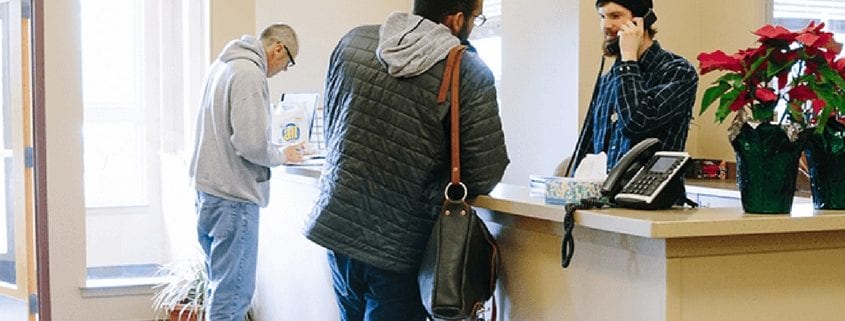
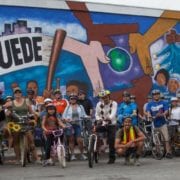

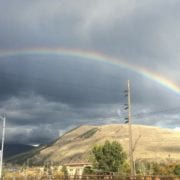

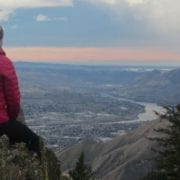
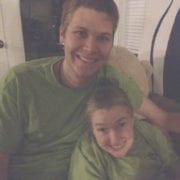



Leave a Reply
Want to join the discussion?Feel free to contribute!